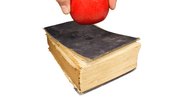During an interview for a teaching position, the principal will likely ask questions about your classroom management techniques. An effective classroom management style ensures that students have a safe, welcoming environment to work in. Interview questions revolve around your ability to organize activities, maintain sufficient records, monitor classroom behavior and discipline students who disregard the rules. You must assure the principal that you have the skills, training and interpersonal skills to manage a classroom.
Classroom Management Goals
Prepare to answer general questions about your classroom management style, such as "What classroom management strategies work best for you?" or "What classroom management goals are most important to you?" These questions aim to uncover your philosophy concerning classroom organization and leadership. Discuss reasons why effective classroom management is important, such as staying focused on curriculum objectives, helping students with individual learning needs and ensuring students have a safe and inviting place to study. Follow up general statements with personal examples of classroom management successes. For example, you might discuss ways you help students stay interested and engaged in their work so they don't get bored. Or, you might discuss classroom policies, such as behavior charts, that reward students for staying on task and following the rules.
Methods of Disciplining Disruptive Students
Expect questions about your methods of disciplining disobedient or disruptive students, such as "What types of discipline do you use in the classroom?" or "How do you handle misbehaving students who make it difficult for others to learn?" Principals realize that discipline is a sensitive, yet vitally important, aspect of classroom management. Education professors and researchers Richard Ingersoll and Thomas Smith report that 40 percent of beginning teachers leave the profession within the first five years due to two primary concerns -- low salary and student discipline problems, according to the New Jersey Education Association. Answer with concrete examples of how you use discipline in the classroom, such as issuing warnings, taking away privileges, isolating the student with timeouts and rewarding positive behavior.
Ways to Maintain Order in the Classroom
Anticipate an interview question that asks you to share three interesting classroom management techniques used in your classroom, according to the Career Services Center at the University of Delaware. This type of interview question is focused and specific, so your answers should be detailed. For example, if students get too talkative or noisy, explain how you use whisper instructions to get their attention, suggests veteran teacher Sally McCombs at EducationWorld.com. Discuss how you use "bell work" -- activities that start immediately when the bell rings -- to start the day or the academic period to help students get on task right away, says McCombs. Or, explain how you use a quick game of "Simon Says" to give students a midclass break and help them refocus on listening to your instructions.
"What If?" Behavioral Interview Questions
Prepare to answer behavioral interview questions that focus on "what if" scenarios, according to Virginia Tech's Division of Student Affairs. For example, the principal might ask something like, "It is the first day of class, you are writing something on the board and a paper wad hits you in the back. What would you do?" Behavioral interview questions can catch you off guard and make you feel uneasy because there's no way to prepare for them. However, you should refer to the management philosophies you've already discussed and apply them to the situation. Explain to the principal that you would firmly reiterate classroom rules regarding respect and would toss the paper in the trash, without appearing emotional. Then, you could ask students to anonymously write the name of the person who threw the paper on a ballot you provide and would talk to the paper-thrower privately after school or during recess.
Related Articles
References
- New Jersey Education Association: Classroom Management -- It’s More Than a Bag of Tricks
- Education World: Classroom Management -- Ten Teacher-Tested Tips
- Career Services Center at University of Delaware: Sample Interview Questions for Teachers
- University of North Alabama: General Teacher Interview Questions
- Virginia Tech Division of Student Affairs: Sample Interview Questions for Teaching Candidates
Writer Bio
As curriculum developer and educator, Kristine Tucker has enjoyed the plethora of English assignments she's read (and graded!) over the years. Her experiences as vice-president of an energy consulting firm have given her the opportunity to explore business writing and HR. Tucker has a BA and holds Ohio teaching credentials.











